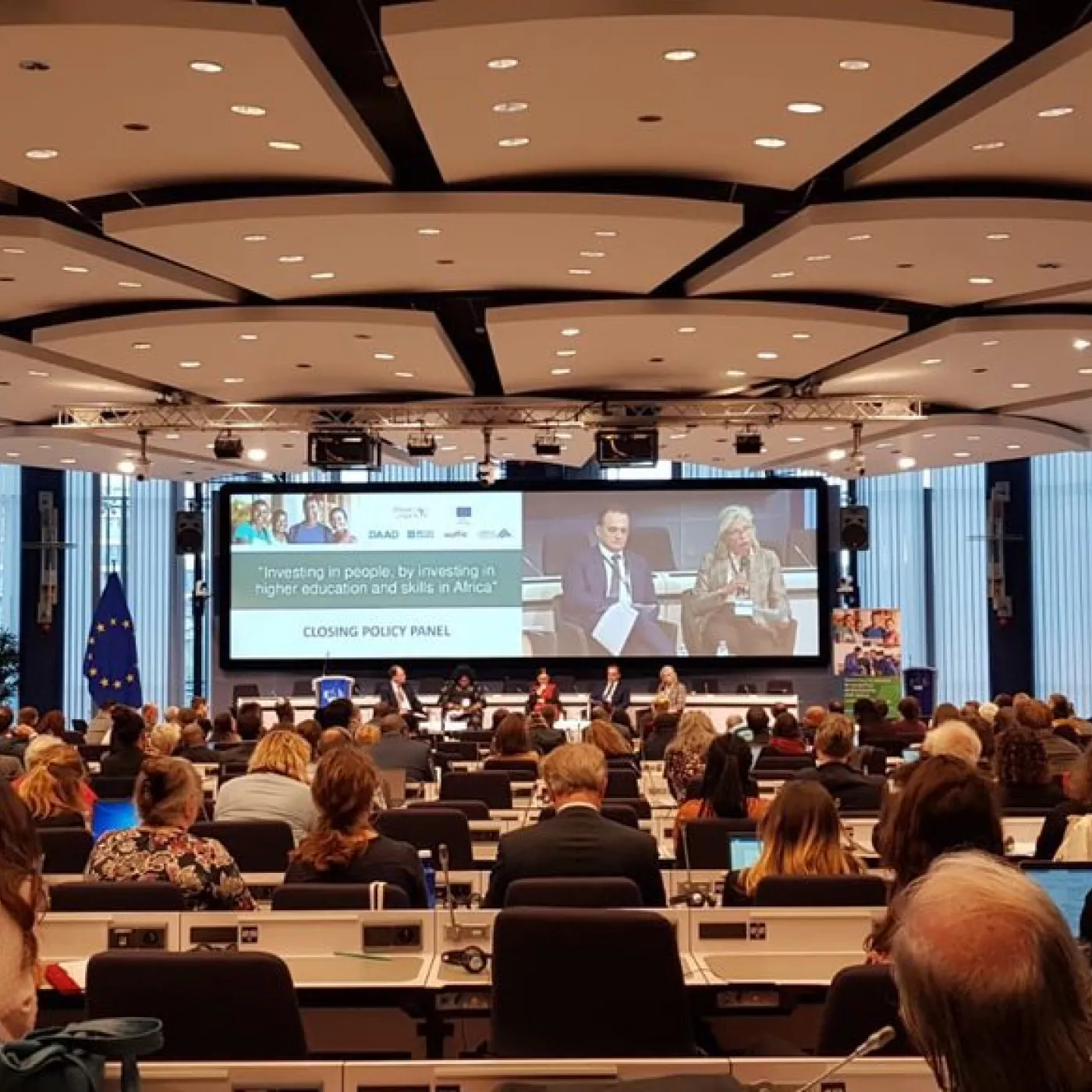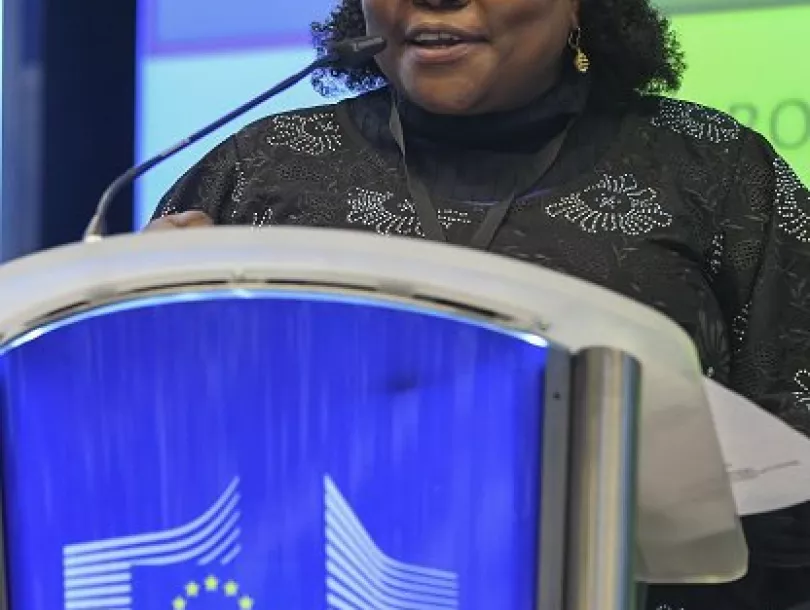'Help transform Africa to the Africa we want'

As one of the organising partners of the first Africa-Europe Conference on Higher Education Collaboration, we can attest to the power of working together towards a shared goal. Aptly themed 'Investing in people, by investing in higher education and skills', over 350 policy makers and higher education representatives from Africa and Europe shared best practices and discussed potential for increased collaboration. The event was a joint initiative by the European Commission (EU), the African Union Commission (AU), Nuffic and our three European ‘sister organisations’ the German Academic Exchange Service (DAAD), the British Council and Campus France.
“The Africa we want”
Starting point of the event was the role of higher education in forging a strong Africa-Europe partnership that is responding to the demands of its young African generation. Investing in skills and the young generation is key for sustainable social and economic development.
Africa and Europe have been working together to develop high quality and inclusive higher education systems. The continents exchange experience in matching skills with the demands of the labour market and support collaboration, mobility and exchange between students and scientists within and between the African continent and Europe.
African Union Commissioner Professor Sarah Agbor commented in her opening speech: ”We believe that African education can move to the next level if we have good collaboration with partners that will help us to strategise and consolidate on science, technology, engineering, etc. to help us transform Africa to the Africa we want.”
Education shapes us as human beings
Director General for International Cooperation and Development at the European Commission Koen Doens, praised the conference’s timing: “We are going through a moment in time where we are fundamentally reshaping the AU-EU relationship. The political momentum and will is there, there is an incredible momentum. Investing in education is one of the pillars of the Africa-Europe Alliance for sustainable investment and jobs”. But, according to Doens, investing in education brings more than just economic benefits: “Education is more than about human capital, more than an economic factor, it is what shapes us as human beings.”
Focus on TVET, refugees and quality assurance
The conference included six thematic sessions on challenges faced by both Africa and Europe in the field of higher education. Topics included the importance of quality assurance, providing study courses relevant to the labour market, linkages between higher and vocational education, mobility and international partnerships, staff development and creating an inclusive and accessible higher education system for all, including refugees.
Nuffic organised a thematic session about higher education and Technical Vocational Education & Training (TVET) in relation to transforming agri-food. Mr Hashi Abdullahi of the Inclusive Green Growth department at the Netherlands’ Ministry of Foreign Affairs stressed the importance of African education institutions ‘in the driver’s seat’ in order to ensure the sustainability of collaboration programmes with European institutions.

“Human capital is the single most important engine for growth. (...) By sharing our ideas, we are able to upscale, learn from our limitations and also from our best practices.”
- Professor Sarah Agbor, African Union Commissioner
Moderated by Mervin Bakker, Director of Nuffic’s South Africa office, the panel discussion centered on how to improve linkages between Higher Education and TVET institutions in Africa. Reforming TVET curricula to change the traditional ‘production orientation’ and include more entrepreneurial and commercial skills will have many positive effects. This also calls for more involvement of the agri-food industry and equipping teachers and lecturers with the skills to address private sector needs. In the Orange Knowledge Programme we manage for the Netherlands Ministry of Foreign Afffairs, a stronger emphasis has been made on capacity building of TVET, as part of institutional collaboration projects.
Examples of the approach in which Higher Education and TVET successfully collaborate, both on Dutch as on the partner country’s side – are showing that the integrated approach is paying off. Marianne van Dorp of Wageningen University & Research shared insights on smart connections between capacity development projects and ‘development’ projects in agri. Associate Professor and Dean Daniel Sila of Food & Nutrition Sciences at Jomo Kenyatta University of Agriculture & Technology, presented the results of the innovative Nuffic-funded INNOFOOD project. Professor Enoch Achigan Dako from Benin discussed the Mobreed Intra-Africa programme and dr. Valérie Baduel of the French Ministry of Agriculture shed a light on professionalisation in agri and rural area development.
In her powerful closing statement, African Union Commissioner Professor Sarah Agbor reminded us of future opportunities. “Human capital is the single most important engine for growth. But we need a paradigm shift on TVET, because of the need to innovate and create. TVET should be a part of higher education. By sharing our ideas, we are able to upscale, learn from our limitations and also from our best practices.”
Recommendations
Nuffic Director Freddy Weima moderated the closing policy panel. Commenting on the enthusiasm and diversity of the participants, he observed that “a professional learning and working community around Europe and Africa and higher education is coming into existence today”. Among the key recommendations for the future of European-African collaboration in higher education, delegates expressed the need for:
- increased cooperation with the private sector,
- continuous professional development for academic staff,
- the promotion of a Pan-African Quality Assurance and Accreditation Framework,
- stronger linkages between higher education and Technical and Vocational Education and Training,
- the strengthening of transnational educational partnerships,
- a comprehensive approach to refugee integration in tertiary education.
For those interested in the conference outcomes, please visit the conference website